Health Benefits of Pumpkin Seeds
Here are 11 amazing health benefits of yummy, crunchy pumpkin seeds and lots of delicious ways to use them.

Pumpkin seeds, also known as pepitas, are so delicious and versatile. These yummy seeds can add crunch to salads, granola, or hot cereal. Or blend them into a delicious creamy salad dressing or dip.
But these pretty seeds offer more than yummy flavor.
Health Benefits of Pumpkin Seeds
Pumpkin seeds are loaded with health benefits. Research suggests that they can even help fight and prevent disease.
Anti-Inflammatory
Pumpkin seeds are rich in many nutrients, such as antioxidants and fiber, that help prevent and reduce inflammation.
Leaky Gut Syndrome
Weighing in at a hefty 1932 mg of l-glutamine per 1/4 cup, pumpkin seeds are a great natural source of L-glutamine – an amino acid that promotes healing and is especially helpful in healing ulcers and/or a leaky gut.
Depression and Anxiety
Research shows that including pumpkin seeds in the diet may help with depression. This may be due to the high levels of tryptophan, zinc, iron, and magnesium in pumpkin seeds since mental health and regulation of stress and anxiety are linked with adequate levels of these nutrients.
Immune Function
Zinc is essential for good immune system function, and 1/4 cup of pumpkin seeds gives you about 20% of your daily needs of this mineral.
Chronic Fatigue
Insufficient intake of magnesium is associated with chronic fatigue syndrome. The high dose of magnesium found in pumpkin seeds can help. Just 1/4 cup of pumpkin seeds gives you nearly half the magnesium you need in an entire day.
High Triglycerides
One study showed that eating a combination of ground pumpkin, flax, and sesame seeds for 12 weeks could reduce triglycerides levels by 30%.
Heart Disease
Pumpkin seeds are high in arginine. Arginine increases nitric oxide levels in your body, which relaxes hardening arteries and helps keep improve blood circulation.
Pumpkin seeds are loaded with nutrients such as fiber and magnesium, which have been linked to a reduced risk of heart disease, high blood pressure, and stroke.
One quarter cup of pumpkin seeds supplies you with a whopping 45% of the magnesium you need, making these little seeds one of the best sources of magnesium. Sufficient intake of magnesium is linked to lowered risk of heart disease.
Type 2 Diabetes
Studies show that supplementing the diet with a mixture of pumpkin seeds and flax seed may possibly help prevent diabetic complications. And due to their high magnesium and fiber content (which help to regulate blood sugar levels), pumpkin seeds may even help prevent or reverse diabetes.
Cancer
Pumpkin seeds are an excellent source of nutrients that are associated with a reduced risk of certain cancers. Laboratory studies show that pumpkin seeds can even stop the growth of some types of cancer cells.
Insomnia
Pumpkin seeds contain tryptophan, an amino acid that can help you sleep better at night. One ounce of pumpkin seeds gives you 164 mg of tryptophan, which is about half of your daily needs. Adding a couple tablespoons of pumpkin seeds to your meals for a few days may help you get a more restful sleep, but don’t eat them as a bedtime snack since eating any type of food before bed may actually cause you to not sleep as well.
Anemia
Need a healthy source of iron? One quarter cup of the mighty pumpkin seed provides 4.2 mg iron, which is 14% of your daily needs of this nutrient.
How to Buy Pumpkin Seeds
Pumpkin seeds can be purchased shelled (hulled) or in the shell (unhulled). Raw (not roasted) and unsalted pumpkin seeds are the healthiest option and provide maximum nutrition. Here’s a good source for fresh and delicious pumpkin seeds.
How to Store Pumpkin Seeds
Pumpkin seeds should be stored in the refrigerator or freezer. The natural fats in nuts and seeds can go rancid quickly if not kept cool.
How to Use Pumpkin Seeds
Pumpkin seeds are quite versatile and can be used in many ways.
Sprinkle them on top of hot cereal.
Add them to homemade granola.
Bake them into cookies and breads.
Add some extra crunch to a green salad, beet salad, or lentil salad.
Blend them to make a delicious dip, like this pumpkin seed pesto.
Add them to a wrap.
More Pumpkin Seed Recipes!
Was This Helpful to You?
Have you noticed that this website is ad-free? Please consider donating so Jennifer’s Kitchen can continue to provide unbiased health information.
Disclaimer
The information in this article is for educational purposes only. It is not as a substitute for medical diagnosis or treatment.
References
Barbagallo, Mario et al. “Magnesium in Aging, Health and Diseases.” Nutrients (2021)
LaChance LR, Ramsey D. “Antidepressant foods: An evidence-based nutrient profiling system for depression” Journal of Psychiatry (2018)
Glenda Lindseth, et al. “The Effects of Dietary Tryptophan on Affective Disorders” Archives of Psychiatric Nursing (2015)
Anna Rafalo, et al. Nutritional Deficiency (2015)
Petrilli, Matthew A et al. “The Emerging Role for Zinc in Depression and Psychosis.” Frontiers in pharmacology 2017
Pickering, Gisèle et al. “Magnesium Status and Stress: The Vicious Circle Concept Revisited.” Nutrients (2020)
Ristic-medic D, et al. “Effects of dietary milled seed mixture on fatty acid status and inflammatory markers in patients on hemodialysis” Scientific World Journal (2014)
Chiuve SE, et al. “Plasma and dietary magnesium and risk of sudden cardiac death in women” American Journal of Clinical Nutrition (2011)
Peacock JM, et al. “Serum Magnesium and Risk of Sudden Cardiac Death in the Atherosclerosis Risk in Communities (ARIC) Study” American Heart Journal (2010)
Akbar A, Shreenath AP, High Fiber Diet, StatPearls Publishing; 2023
Makni, Mohamed et al. “Antidiabetic effect of flax and pumpkin seed mixture powder: effect on hyperlipidemia and antioxidant status in alloxan diabetic rats.” Journal of diabetes and its Complications (2011)
Joachim M. Dotto, James S. Chacha, “The potential of pumpkin seeds as a functional food ingredient” Scientific African, (2020)
Zaineddin AK, et al. “The association between dietary lignans, phytoestrogen-rich foods, and fiber intake and postmenopausal breast cancer risk: a German case-control study” Nutr Cancer 2012
Beni Lestari, Edy Meiyanto “A Review: The Emerging Nutraceutical Potential of Pumpkin Seeds” Indonesian Society for Cancer Chemoprevention (2018)
You my also like:
Before you go . . .
Did you know that you can eat all this delicious food AND lose weight? You can!
No calorie counting. No portion sizes.
Join my online weight loss program today!

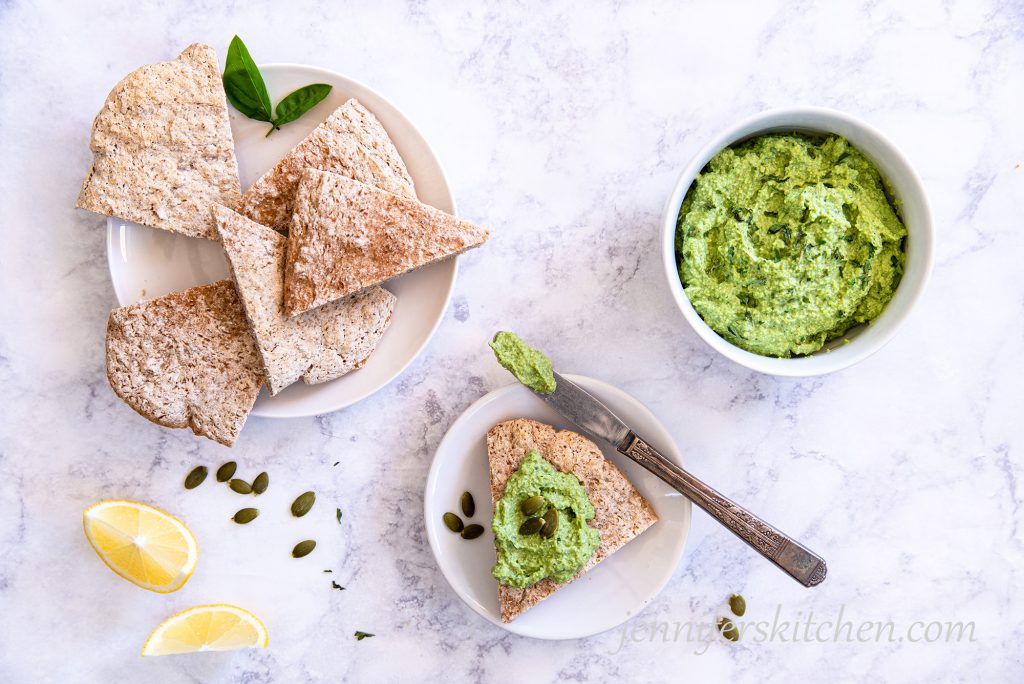
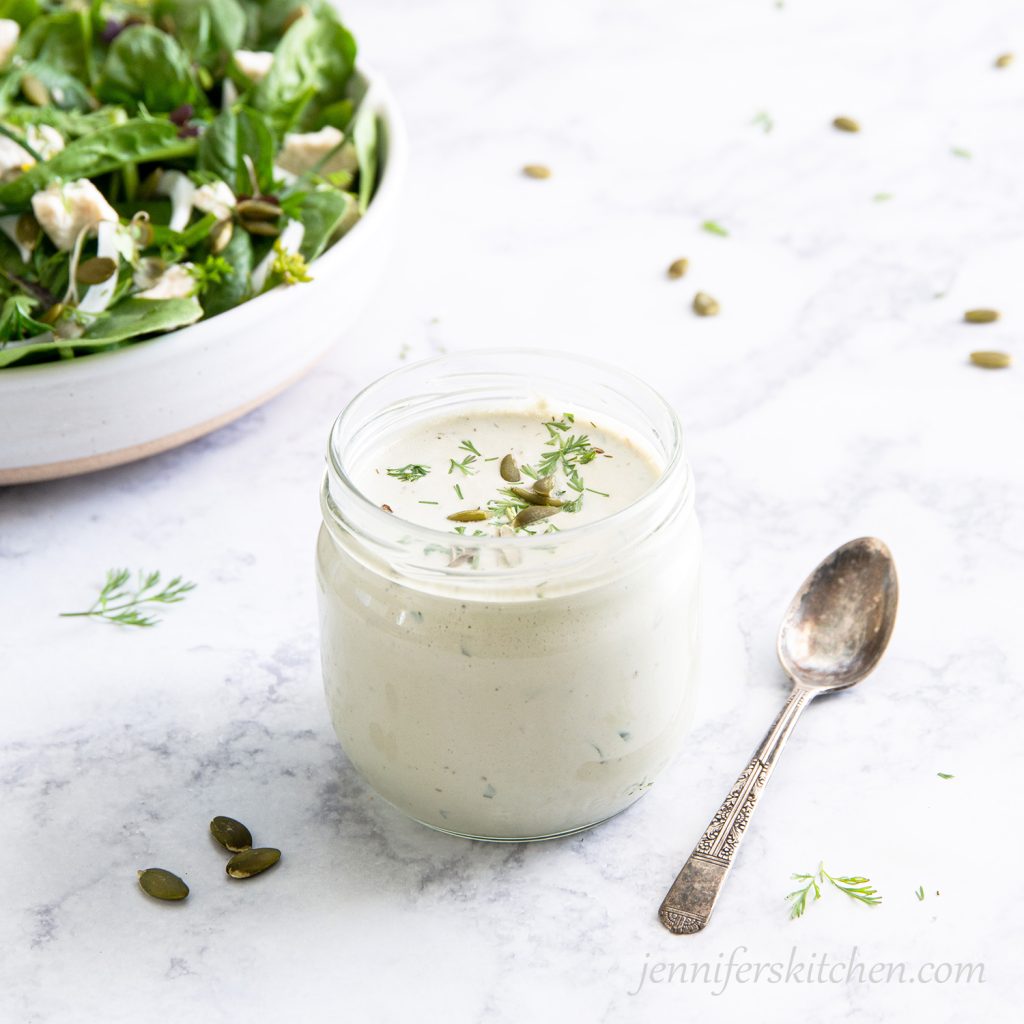
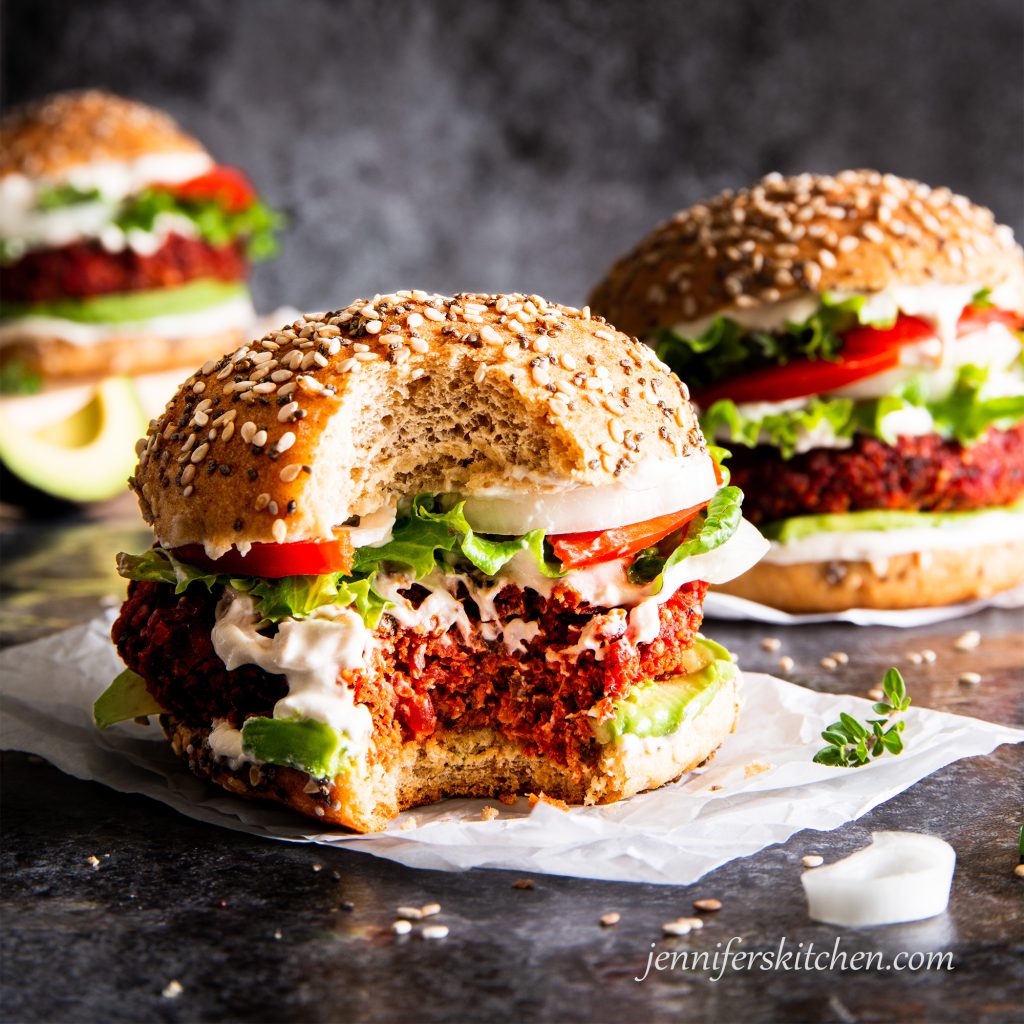
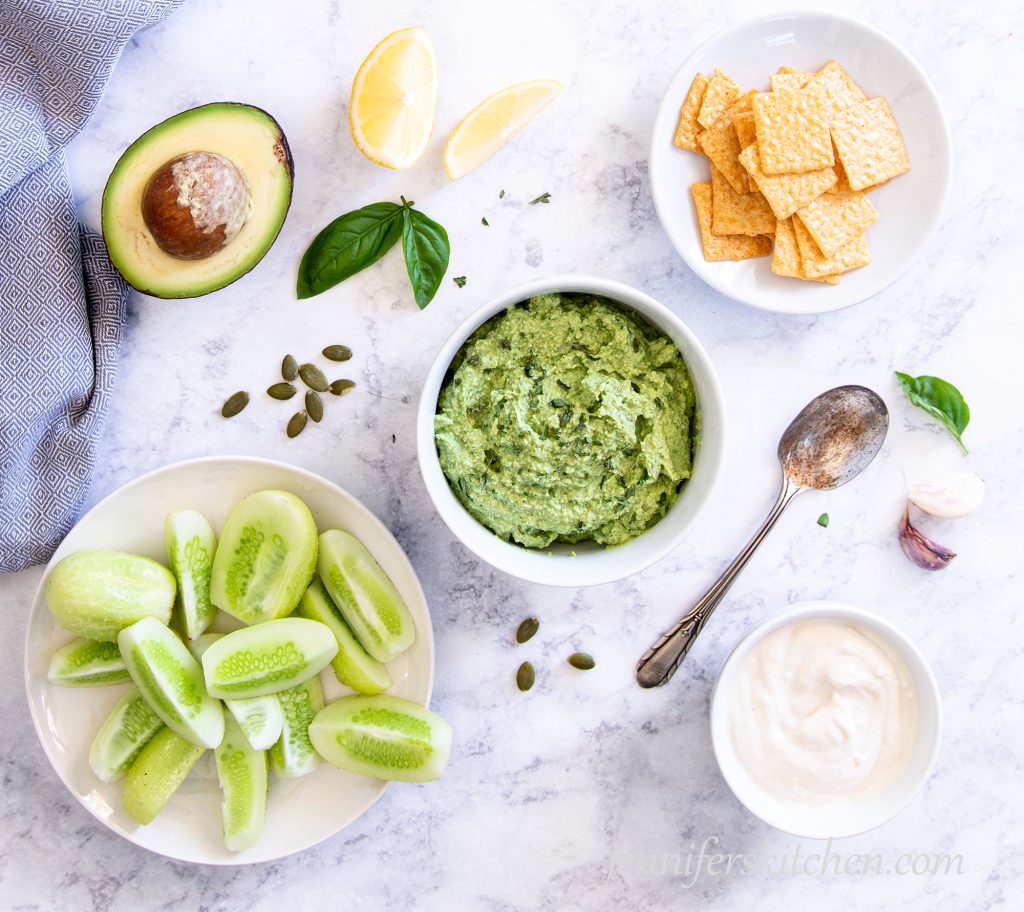
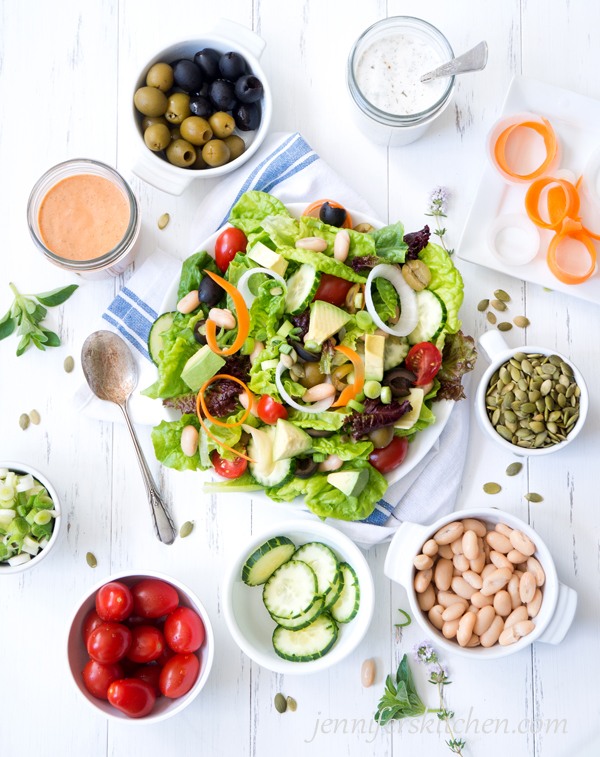
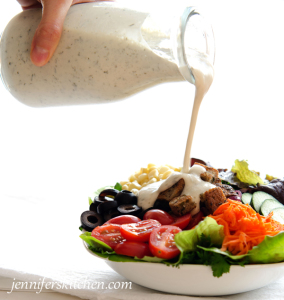
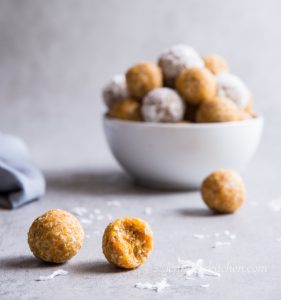
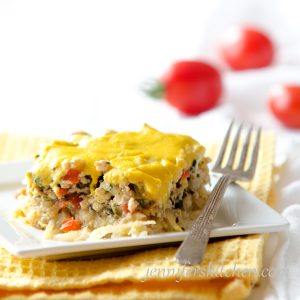
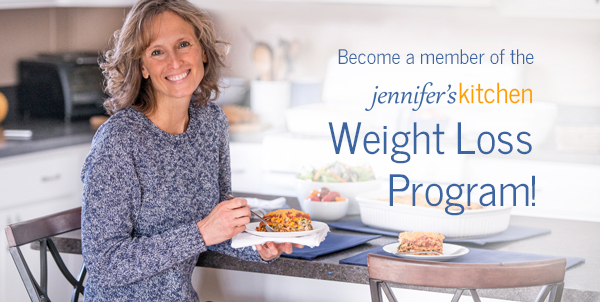
Please consider leaving a star rating and a comment. This helps others discover my recipes. Thank you! 🙂